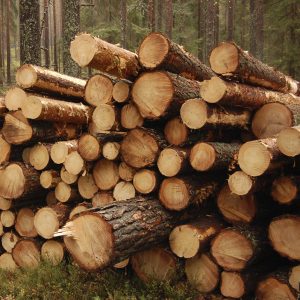Sustainability of widespread forest certification and the Maine Forest Practices Act
An investigation of landscape-level changes in economically, ecologically, and culturally important forest species and structures
Institutions: University of Maine
Sponsor: Senator George J. Mitchell Center for Sustainability Solutions

The sustainability of Maine’s forest industry is of critical interest to multiple stakeholders within the state. Both industry advocates, as well as environmentalists, have a vested interest in ensuring that practices in the state enable forests and forest management activities to persist into the future. Historically, sustainability in forestry was focused on ensuring that the amount harvested did not exceed growth and thus could be maintained indefinitely (sustained yield). More recently, sustainability has encompassed a more holistic view, one that requires attention to not just harvested amount, but also maintenance of wildlife habitat, soils, social and cultural systems, and watersheds.
To-date, two key mechanisms have been utilized as safeguards for sustainability in Maine: (1) certification programs such as those sponsored by the Sustainable Forestry Initiative (SFI) and Forest Stewardship Council (FSC), and (2) the Maine Forest Practices Act (FPA). As a voluntary program, certification incentivizes best practices by creating additional market value for final wood products. The FPA, in contrast, is a regulatory mechanism designed to prevent worst practices through punitive actions. The FPA has drawn criticism for perceived shortcomings and unintended consequences, including the doubling of annual harvest area by mechanized partial harvesting and the consequent loss and fragmentation of intact older forest. Partially in response, the Maine Forest Service (MFS) is pursuing an Outcome Based Forestry (OBF) initiative. Under a typical OBF agreement, a landowner agrees to demonstrate measurable progress toward achieving a state’s sustainability goals, and in return is exempted from certain provisions of forest policy. Progress can be evaluated via different strategies; Maine and some other states have chosen to use certification compliance rather than a separate evaluation process.
We propose to 1) collaborate with landowners, certification auditors, and MFS (the primary stakeholder tasked with oversight of OBF agreements in Maine) to identify knowledge gaps that limit assessment of sustainability and OBF outcomes, and 2) evaluate a core set of research questions that will assess the influence of certification on multiple metrics of sustainability. We will begin by convening a focus group in 2015 to brainstorm and to identify key themes and gaps in sustainability research. This will be followed up by the distribution of a paper survey via mail to a wide group of stakeholders, including active managers, land owners, and certification auditors, to fully develop clear research questions and a comprehensive set of sustainability metrics that can be addressed by our research team’s collective expertise. Under our second objective, we will address two additional sustainability questions related to certification and the FPA. First, does management under certification and the FPA promote sustainable harvest levels? Second, has management under certification and the FPA adequately protected ecologically or culturally important and under-represented forest types or tree species? We will explore these questions using a 42-year time series of forest harvest maps (1973-2015) derived from satellite imagery and spatial locations of USFS Forest Inventory and Analysis (FIA) plots made available via an agreement with the Northern Research Station.
This blend of academic and collaborative, stakeholder-driven research will form the foundation of a comprehensive evaluation of sustainability outcomes we propose will fill an identified gap in knowledge of the outcomes under certification programs, as well as function as an initial program assessment of certification as a policy instrument for sustainability. Through outreach and innovative use of geospatial data, we will be able to provide not only an accounting of current conditions (including management objectives, challenges, and opportunities under current systems), but also an assessment of landscape variability. The collaborative process we propose will allow us to identify thresholds or set benchmarks for metrics identified as important or informative by our stakeholders who are enrolled in certification programs or in OBF agreements. This study is particularly well timed for maximizing the opportunities of early engagement in a newly emerging facet of Maine’s forest-based socio-ecological system.
Team Leader:
Erin Simons-Legaard, Assistant Research Professor, School of Forest Resources
Team Members:
- Mindy Crandall, Assistant Professor, School of Forest Resources
- John Daigle, Associate Professor, School of Forest Resources
- Kasey Legaard, Associate Scientist, School of Forest Resources
- Aaron Weiskittel, Associate Professor, School of Forest Resources
Resources:
NEWS: Striving for Forest Sustainability: A Better Way to Assess Progress
